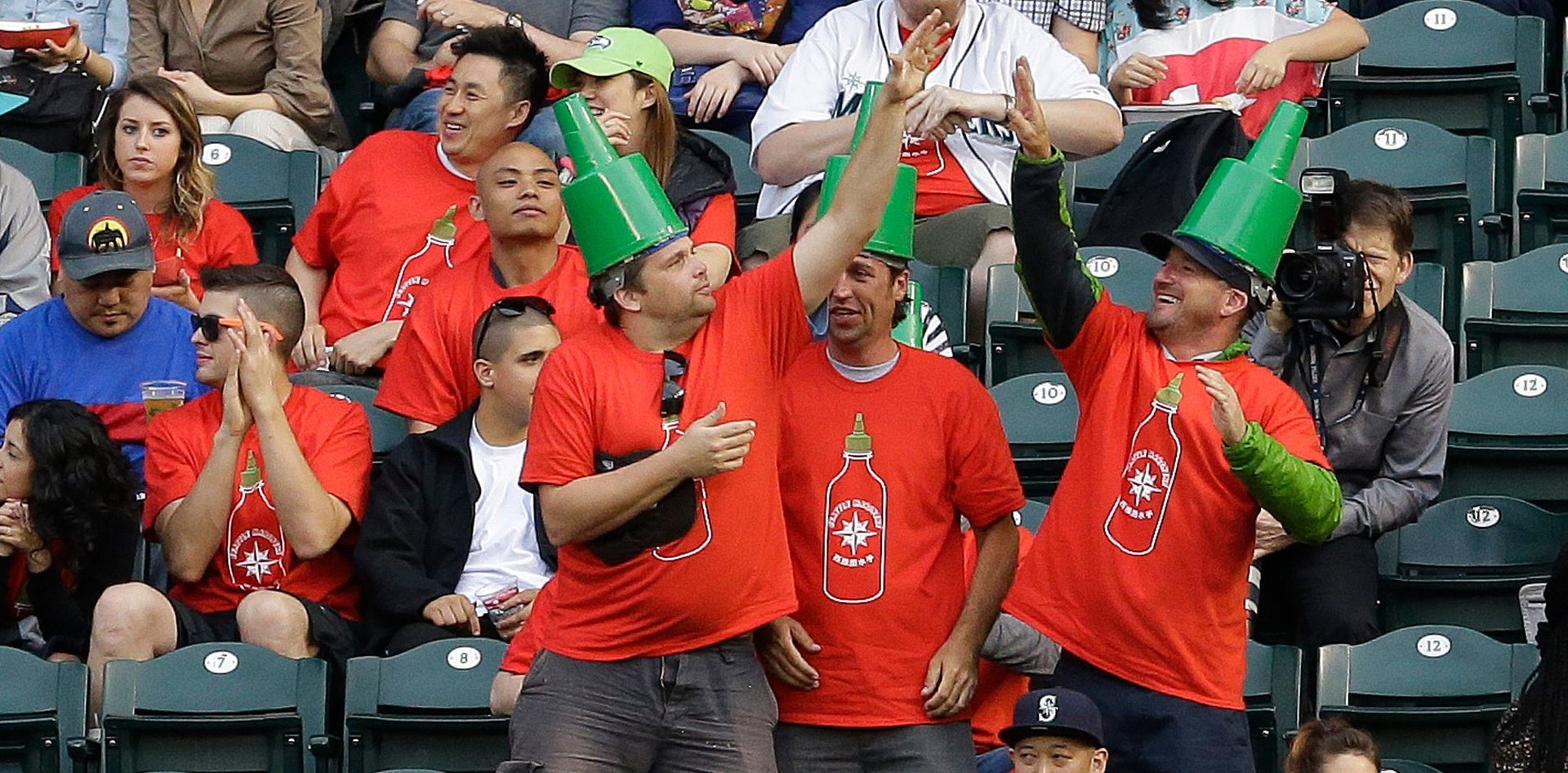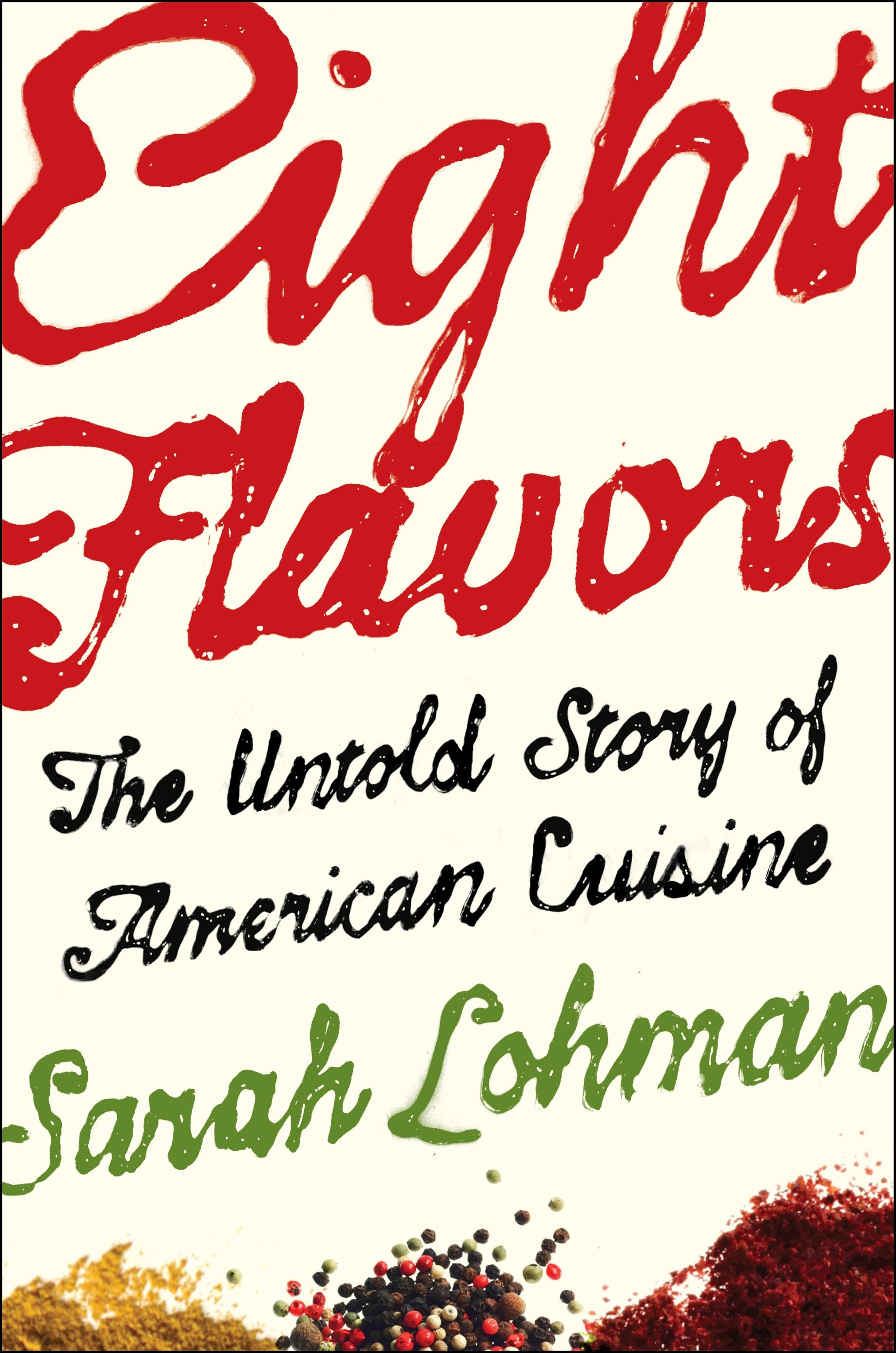The flavors of American cuisine exist thanks to its refugees and immigrants
Sarah Lohman learned to bake so she could eat as much cookie dough as she wanted. Just two decades later, she’s a historic gastronomist, food blogger and educator at New York’s Tenement Museum. Her debut book, Eight Flavors: The Untold Story of American Cuisine traces the history of eight key ingredients—black pepper, vanilla, curry powder, chili, soy sauce, garlic, MSG and Sriracha—looking at how those flavors got into America’s pantry and what they mean for our modern way of eating.


Sarah Lohman learned to bake so she could eat as much cookie dough as she wanted. Just two decades later, she’s a historic gastronomist, food blogger and educator at New York’s Tenement Museum. Her debut book, Eight Flavors: The Untold Story of American Cuisine traces the history of eight key ingredients—black pepper, vanilla, curry powder, chili, soy sauce, garlic, MSG and Sriracha—looking at how those flavors got into America’s pantry and what they mean for our modern way of eating.
Why do you think it’s important to understand the history of food?
People treat our current state of food and diet as though it just dropped out of the sky. Every way we eat today has come from a long, long legacy. Look at the current criticism against our very white bread, carb-heavy, sugar-loaded diet. That expectation was set up a hundred years ago, when we were getting millions of immigrants coming to this country. It was part of the American dream. Coming to America and having this cake-like bread, bread you didn’t have the money to access back home, made it an aspirational food. Now we maybe aspired a little too far and we have to step back, but I think it’s important to understand these really deep-rooted cultural signifiers, and what these foods meant to our parents, grandparents, great grandparents, and why they were picking these foods, which then shaped this broader American culture.
What drew you to historic gastronomy?
I’d been baking since I could stand, with my mom. I think what really motivated me is that if I baked with my mom, I only got to eat so much cookie dough, and then if I baked by myself, I could have as much as I wanted, because there was no one to stop me.
When I got a little older, say 14, 15, when my mom went back to work and my brother was in college, a lot of the preparation for dinner fell on my shoulders, so that’s how I learned to cook.
And at 16 you started working in a living history museum in Ohio, cooking historic recipes in a wood-fired stove. This lifelong obsession with old recipes, ingredients and the history of food became your debut book, Eight Flavors.
Although I’d been writing [Eight Flavors] for four years, I didn’t know that we would be politically, as a country, where we are right now. When I was writing it, I did know that the stories I wanted to focus on were of people who are disenfranchised, the people who do not get written about in our history books. History books are still full of white men, and that’s not the story of food.
The story of food is also not just about what’s on the dinner table, it’s about our broader culture and history. So I chose to write about women and to write about black people and immigrants and refugees.
I enjoyed the story of refugee David Tran, who brought Sriracha to the States and the mainstream.
To me, that is such a quintessentially American story. You’re an immigrant and you come here and you pull yourself up by your bootstraps, you start your own business and you struggle.
When David Tran first came here, he said to himself, “Okay, I’ve got to support my family. What am I going to do? Well, I know how to make hot sauce, so I’m going to start doing that.”
Who knew that hot sauce would have such a devoted following?
On the practical side, he is also a genius. He designed the bottle. He customized all the machines in the factory and when I was there, it was still getting up and running, so he was literally going around the factory in his golf cart and helping to fix and repair machines.
The book covers new flavors such as Sriracha as well as old flavors, including MSG (monosodium glutemate). I confess I’’ve demonized MSG, so it was very interesting to read your take.

I didn’t know when I was writing it how relevant every single chapter would be to right now, because aside from the story of immigrants and refugees, there’s also this growing concern that people aren’t listening to science in any level. Whether that’s climate change or just an aversion to factual information.
It’s not any great loss if people don’t eat MSG. We’re not improving nutrition. It doesn’t make a difference if you eat it or not. It’s not like vaccination. But it is important to talk about it because it’s important to educate and to get rid of ignorance wherever it exists, particularly when it comes to talking about science.
My dad is a biochemist. My brother is a biochemist. I come from a family of scientists. I grew up with science and skepticism. That’s important too. But MSG is not bad for you. It’s been proven it’s not bad for you.
Monosodium glutamate (MSG) is made up of sodium. It’s made up of salt. If we’re going to villainize MSG, then you have to villainize salt in the same way. We know that salt can hurt us, but it’s also a necessary nutrient. Something can be both a poison and vital to our survival as a human being.
You also have an interesting take on GMOs (genetically modified organisms).
I think that the idea of what makes ‘bad food’ is complicated, because Europe has banned GMOs and I don’t agree with that. GMOs are not unsafe. The bigger issue is, are they successful or not?
For example, if something isn’t done about the blight that’s happening in Florida, we’ll lose our orange industry. These are people’s jobs and livelihoods, so then [GMO foods] need to be looked at as a tool we have to feed the world healthy food, and not simply written off because it’s science and it’s frightening.
You seem to disagree with a lot of accepted ‘wisdom’ about what is and isn’t healthy.
What frustrates me is that our rhetoric is misguided. We’re so focused on artificial flavorings and GMO, which I think is just baloney, to focus so much time and energy in these things that are actually not harmful. We’re not talking about grocery store waste and how it should be a legal requirement that that food gets donated. We’re not talking about the amount of packaging that we offer.
But the answer isn’t going back to the old days and cooking everything from scratch, as you do for your blog, Four Pounds Flour.
We think we cook from scratch today. We don’t. Our sliced bread, our pre-washed carrots, these are all convenience foods. We just have to stop villainizing that term, because your yogurt is convenience food. Every prepackaged thing is convenience food.
If we think back 100, 150 years, when that was women’s jobs to make their own yogurt and make their own bread and make every meal from scratch. In New York, you’d have to go to the market too. You’d have to go do shopping every single day. It was ludicrously time-consuming and monotonous. That is one of the reasons we are where we are. It doesn’t mean we shouldn’t continue to reform and that we shouldn’t continue to look back, but we don’t even realize how far we have come, particularly as women, in liberating ourselves from the kitchen.
Cooking is now therapy for a lot of people, including me.
Right. It’s a hobby, but that is not how our grandmothers and great grandmothers saw it. They were chained to the kitchens. Starting even by 1906, embracing convenience food at the turn of the century, and then even more in the 1950s meant that we get to spend time with our husbands, boyfriends, children. It meant we got to get a job. We had options. We got to choose how we wanted to live our lives. Convenience food was a big part of that liberation.
How do you think we move forward from here?
Obviously I’m very pro-science. My stance is pro-science, but to ask people to be reasonable. There’s so much false rhetoric around food, and we have to take a moment and separate our emotions and say, “Well, wait a minute. Is this really true? Is this really better for me? What can I do to eat better, to eat healthier?”